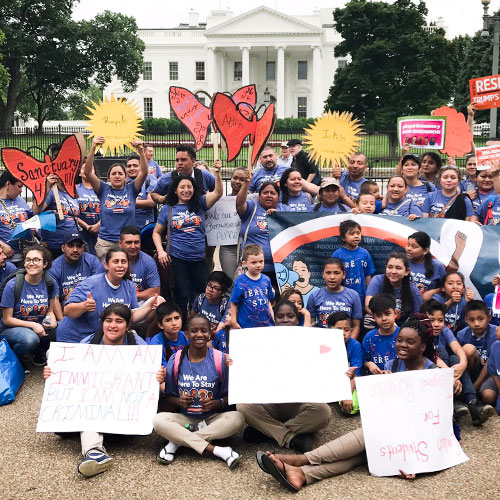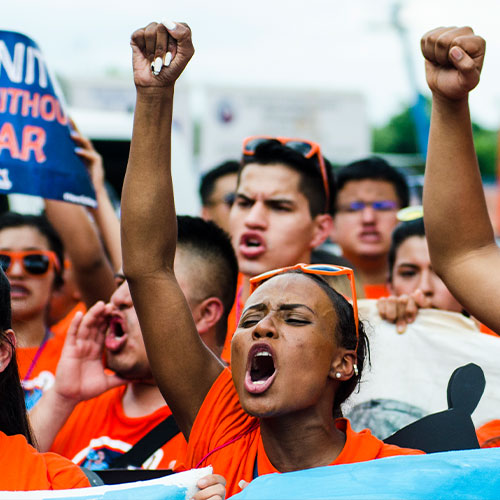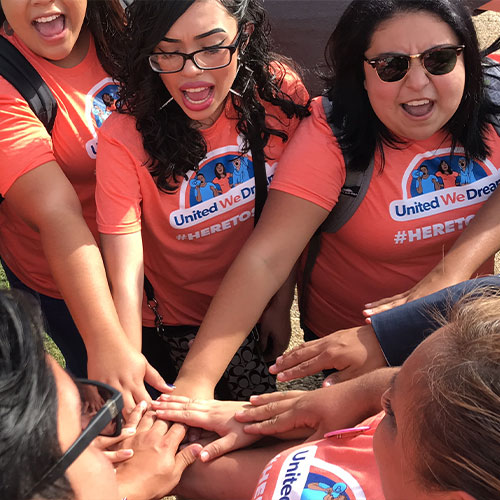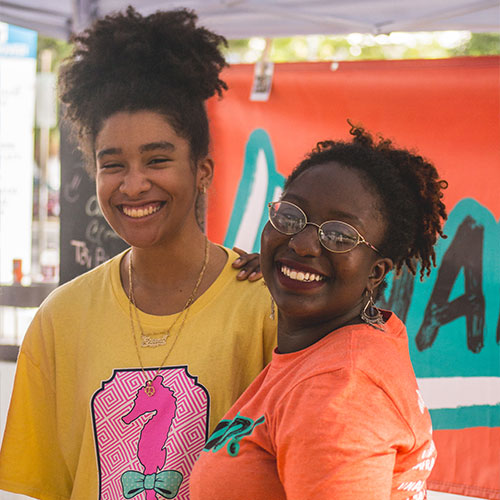I love my mother’s cooking. I am almost positive she learned how to cook from the gods themselves. Every dish is made to perfection. I swear she can make everything taste like a five-star meal. For as long as I can remember she has been cooking, constantly in the kitchen. Not because she has to but because she wants to. Cooking is her love language. Feeling sad? Chocolate is nature’s mood booster. Feeling stressed? Here’s a plate of colorful fruits to relax. Feeling angry? Here you go mi amor, a nice bowl of chicken soup to calm the soul. There is no pain or worry that can’t be solved with her food. I treasure every bite, savoring it. But if I’m being honest, I used to hate my mother’s cooking. Not because it tasted bad, she could never make such a thing. I hated her cooking because it was different. She was different. I was different. We were different. And I hated being different.
It began in elementary school. The lunch she packed in my blue lunchbox stood out. As soon as I would sit down and open up the Tupperware, the smell of her homemade food would pollute the air. I would try to hide the smell, air it out, and hope no one would notice. But whether it was spicy chiles rellenos, warm caldo de res or savory pozole, the other kids always noticed.
“What’s that smell?”
“What are you eating?”
“It looks weird”
Instantly my face would turn red— hotter than the tortillas she would neatly wrap in aluminum foil. I would then spend the rest of lunch eating my food secretly, embarrassed at the food my mom worked so hard to make. It got to the point where I would just throw it away, tender chicken tamales and their rough husk hitting the black trash bag with one of her little love notes following close behind. Horas de trabajo en la basura. Hours of work in the trash.
I told her to stop making me lunch. I forbid her from speaking her love language. I traded my homemade enchiladas for cafeteria pizza on plastic trays, pretending to enjoy every bite. Finally, I fit in— or so I thought.
The truth is, I could never fit in. I thought the food was what gave me away. But everything about me betrayed me: my skin, my curly hair, my accent. I was a Mexican-Iranian child living in a foreign country. I tried to assimilate. To embody the great American Dream. But I was living a lie. A straight hair, English only, frozen chicken nuggets lie. No matter how much of my culture I hid and how many changes I made, I was the punchline for bad jokes and I still stuck out amongst my classmates. I was still different and the mask I hid behind became more and more uncomfortable. I missed mi cultura; the sense of belonging somewhere. The richness. The beauty. The flavors. Oh, how I missed the food, and the tender hands that prepared it. How dare I reject the hands that once fed me? The callouses and wrinkles, they were distinct. My mother was different. I was different. Our food was different. I needed to stop starving myself of my culture.
Away with the green lunch trays and in with the blue lunchbox. Pride. From mole to tostadas, I learned to enjoy every bite. My mother left everything behind when she came to the United States. But food? That was something that didn’t need to fit in a carry-on. Every recipe memorized, she brought a piece of her home with her and shared it with me. Food was the connection between the two worlds I felt torn between as a child. Perhaps she cooked because she wanted me to learn about our culture, because she wanted me to feel loved, because she wanted me to feel at home in this country, or because she wanted to cling on to the one thing they couldn’t take from her: English replaced Spanish, the suburbs replaced el rancho, but the food remained. That was something they could never take.
I am growing up now. I went from carrying a sparkly blue backpack to carrying the weight of being the eldest daughter in an immigrant family. I spend hours on the computer, reading, writing, and studying. Worrying about my ability to one day provide a better life not just for myself but for my parents and brother. Yet through it all, without fail, a plate of food always appears at my side.
“No te estreses mija, come fruitita, te va ayudar.”
“Do not stress sweetheart, eat some fruit, it’ll help.”
I wonder how much more I will change when I leave home too. When my own bags are full of clothes and books and dreams and it becomes my turn to memorize the recipes. I am a horrible cook, but I plan on keeping every spoonful of my mother’s legacy alive. I just hope my kids never feel ashamed of it. I pray they embrace the smell, the spice, and the warmth, just as much as they embrace the hands that created it. That they understand that every bite is a connection to the motherland. That they take pride in their culture, the culture mi mamá fought so hard to maintain. Cooking is our love language.






Ever since their creation, ICE and CBP have targeted, detained, abused and deported immigrants while separating loved ones and tearing apart communities. Donate 21 dollars to help us fight back against the 21 years of terror.